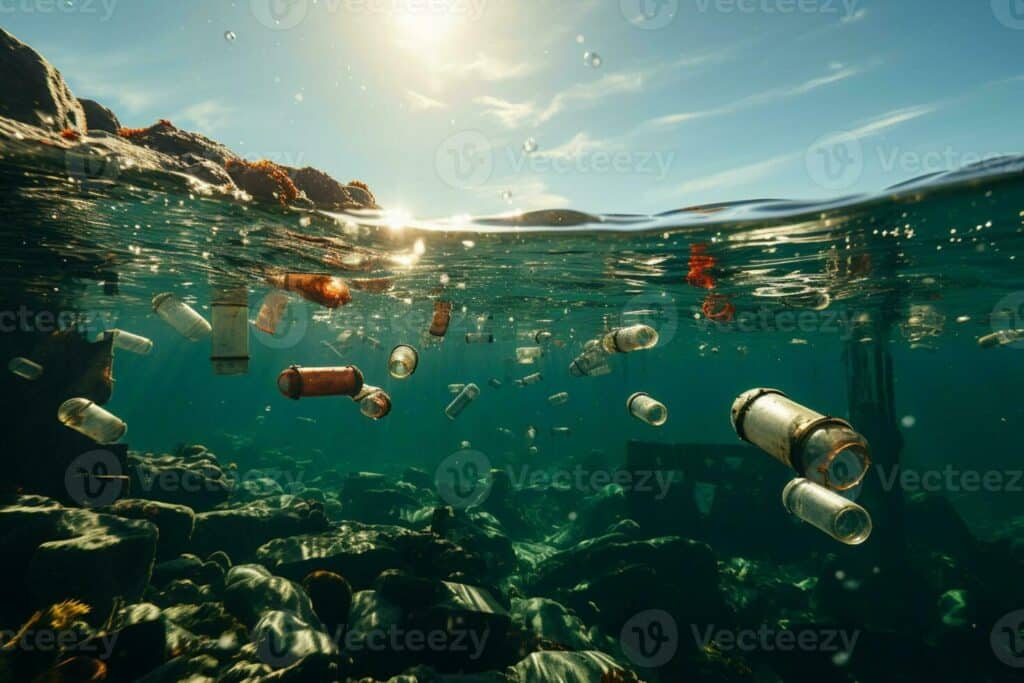The ocean is immense, seemingly boundless, and covers over 70 percent of the surface of the Earth. Along with sustaining life, oceans are of great importance regarding the climate regulation of the whole planet, acting as an essential food resource for billions of people. Yet, despite their importance, oceans are in crisis-a crisis affecting every one of us, whether we realize it or not.
The Threats to the Oceans

Pollution
The oceans are flooded with pollutants that range from plastics to toxic chemicals. An estimated amount of 11 million tons of plastic enters the ocean each year, choking the life out of marine species and disintegrating into microplastics, which infiltrate into the food chain. These problems are further compounded with oil spills, agricultural runoff, and industrial waste that together create “dead zones” where marine life can barely survive.
Overfishing
Overfishing has driven many species to near extinction. Industrial-scale fishing operations deplete fish stocks at unsustainable rates, wreck marine ecosystems, and set at risk the livelihoods of millions of people dependent upon fisheries. Illegal fishing practices and habitat destruction, such as that of coral reefs, further exacerbate this problem.
Climate Change
It absorbs about 90% of the excess heat that comes from the greenhouse emissions, causing sea temperatures to rise and the ocean’s acidification. Warmer waters are forcing species to migrate, the bleaching of coral, while the melting of polar ice caps adds to sea level rise. Ocean acidification, due to the uptake of increased CO2 being absorbed, weakens shells of marine organisms and negatively impacts the marine food chain.
Habitat Destruction
Human activities, including coastal development, dredging, and deep-sea mining, have destroyed important marine habitats. Although coral reefs support 25% of marine life, nearly half of the world’s reefs have been degraded or lost. Mangroves and seagrass beds are similarly destroyed at frightening levels, despite their key roles in carbon sequestration and as nurseries for marine species.
Why It Should Matter to Everyone
Climate Regulation
Oceans are the most important carbon sink of the planet, absorbing approximately 25% of the CO2 emitted into the atmosphere. A healthy ocean contributes to regulating global temperatures and mitigating the impacts of climate change. When the ocean’s capacity to absorb carbon is compromised, the effects ripple across the planet, contributing to extreme weather events, rising sea levels, and shifting climate patterns.
Food Security
Over 3 billion people rely on seafood as a major source of protein. The destruction of marine ecosystems jeopardizes global food security, particularly for the populations of developing nations that depend so much on fish as a food staple. Sustainable fishing is critical to ensure the resource is there for generations to come.
Economic Impact
Besides contributing to the employment of several people in the industries dealing directly or indirectly with it-in regard to fishing, tourism, and transportation-the estimated value addition it contributes to is something at about US$24 trillion. This makes the ocean literally a cornerstone of world economics. However, degraded marine ecosystems put the whole risk onto these industries and further link their economic instability to affects in livelihoods.
Biodiversity of Ecosystems and Its Health
From the tiniest plankton to whales, the most enormous forms of life have made oceans their home. Loss in marine species disrupts ecosystems and lessens the ocean’s capacity for fundamental services such as carbon capture and oxygen production. Protecting the ocean is protecting the intricate web of life that sustains us; it is not about single species.
What Can Be Done? The ocean crisis will be solved only by addressing it at all levels:
Reduce Plastic Pollution
It is up to national and local governments, private interests, and individuals to curb the use of single plastics, enhance waste collection operations, and support emerging, fully biodegradable substitute products. Beach clean-up efforts and recycling campaigns contribute much to mitigating a few of the negative impacts affecting our oceans due to marine pollution.
Support Sustainable Fishing
Policies need to be instituted and enforced that would help in sustainable fishing. Consumers can help by choosing seafood that is sustainably sourced and avoiding species in jeopardy from overfishing.
Combat Climate Change
A reduction in greenhouse gas emissions is vital to oceanic protection. The transition to renewable energy sources, reforestation, and supporting carbon capture technologies are potential mitigants to the consequences of climate change on marine ecosystems. Protect Marine Habitats Establishment of MPAs and application of regulations on destructive practices, such as trawling and mining, can protect critical habitat. Other ways to build ocean resilience include restoring damaged ecosystems like coral reefs and mangroves. Increase Public Awareness Education and advocacy can be an effective agent of change in this direction. By informing or educating people on ocean health and its threats, individuals and communities may rise to effect positive policy reforms.

The Ocean is our lifeline.
The ocean crisis is not a problem of the interior of the sea but an already acute trouble affecting us all. We cannot afford for humanity to ignore this lifeline, on which we depend for all things, from the air we breathe to the foods we eat. This problem requires immediate action and quite a bit of persistence before it can be brought under reasonable control, but fortunately, the solutions are at hand. If we act together, then the tide will turn to secure the life of our oceans and ensure that they continue to provide a source of life and prosperity for generations to come.




